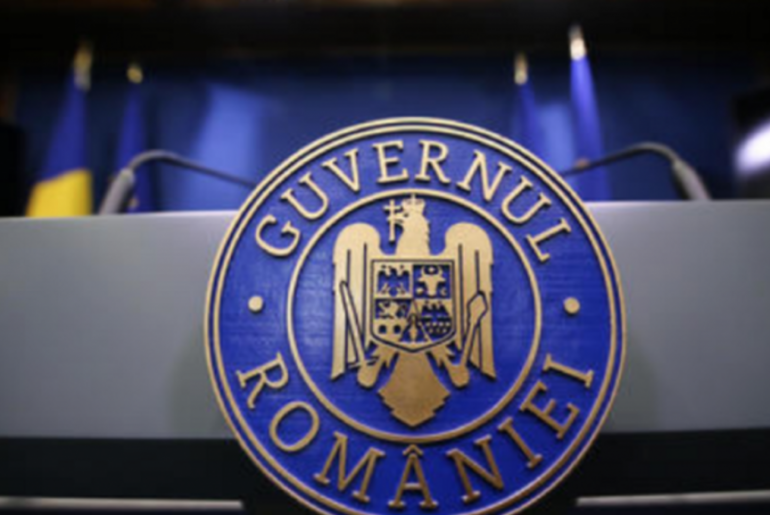PNSA COVID-19 Legal Response Team
In this time of crisis, each state individually and the European Commission, centralized, seek solutions to economically support the companies.
With applicability on the Romanian market, we will detail below (1) the measures taken so far in Romania and (2) details on several types of measures available at European level that the Romanian state may access in the near future.
1. Measures taken so far in Romania
1.1. General framework
The Decree no. 195/2020 regarding the imposition of a state of emergency (the “Decree”) provides that the Government may take support measures towards the economic operators’ active in the sectors affected by COVID-19.
The Decree is the bridgehead based on which the Government has issued and may continue to issue regulations aimed at overcoming the financial distress.
Further on, the Decree provides that the economic operators whose activity is affected in the context of COVID-19 may request, based on supporting documents, the Ministry of Economy, Energy and Business Environment the issuance of emergency situation certificates.
Who may benefit: This has not been effectively implement yet, but based on publicly available information it seems that the certificate of emergency situation may be granted only to economic operators active in the following sectors: transportation, tourism, HoReCa, event organization, advertising, private education and related activities, clothing, footwear and leather goods, services for population.
Conditions: The conditions and procedure for granting such emergency situation certificate has not been adopted yet. However, according to the current project emergency situation certificates could be granted as follows:
- Requests of emergency situation certificates shall be done exclusively electronically through http://prevenire.gov.ro.
- Information necessary – identification data, contact data, reason for requesting the certificate, supporting arguments of the need to obtain such certificate, data regarding financial documentation.
- Supporting documents – Registration Certificate, identity card of the company’s legal representative, trade register certificate issued by the Romanian Trade Registry, certified financial balance sheet for the month in which the turnover has decreased with minimum 40% compared to the same period from last year (together with the balance sheet from such period), declaration according to which no false information has been provided and the express declaration that the decrease in revenues has been caused by the COVID-19 outbreak.
- In case the decrease is below 40%, but the company is in difficulty because of the COVID-19 outbreak, it should provide additional supporting documents.
The certificate of emergency situation will be granted only during the period of state of emergency, but are valid until the end of the year.
What’s the use for the certificate of emergency?
- Attesting that the company’s activity was negatively affected in the context of COVID-19 pandemic.
- Opening the right to certain advantages such as: payment by the state of indemnities for technical unemployment leave, request of renegotiation of contracts, postponement of payment of utilities and rent (all such facilities are detailed below).
1.2. Specific state aid and other support measures in Romania
As mentioned in the Decree, the Government has a general vocation of implementing support measures.
So far, the Government has issued two Ordinances which contain economic measures aiming at compensating damages caused by COVID-19 outbreak.
We have included below an overview of such measures, as provided by the Government Emergency Ordinance no. 29 of 18 March 2020 regarding several economic and fiscal-budgetary measures (Ordinance no. 29/2020) and by the Government Emergency Ordinance no. 30 of 18 March 2020 (Ordinance no. 30/2020).
This legislative package includes a series of measures specifically applicable to small and medium enterprises (SMEs), but other general measures as well (nonetheless, most measures concern SMEs).
SMEs are defined as companies having, cumulatively, less than 250 employees and a net annual turnover up to 50 million EUR or their total assets do not exceed EUR 43 million.
Measures applicable to SMEs
- Program of support of SMEs – IMM Invest Romania
The Ordinance no. 29 modifies Law no 209/2018 regarding the Program of support of SMEs – IMM Invest Romania, by mentioning that the Program consists in granting state guarantee for every participant to the program either for working capital credits or for investment credits.
Who is eligible?
All SMEs, as defined above, are eligible, assuming they do not have outstanding fiscal obligations. Should they encounter such debts, SMEs still become eligible if they undertake to settle the debts by using the credit for working capital granted within the program.
What are the measures covered?
For SMEs, the State guarantees 80% of the principal amounts (without interest, commissions and charges of the banks) for one or more investment or working capital credits.
Maximum value of cumulated credits guaranteed by the state to a beneficiary within the program is 10.000.000 lei. For funding working capital, the maximum value of credit/lines of credit cannot exceed the average of costs corresponding to working capital in the last two fiscal years, in the limit of 5.000.000 lei. For microenterprises (companies with up to 9 employees and an annual net turnover/ total assets value below the equivalent in lei of 2 Mil EUR) and small enterprises (between 10 and 49 employees and an annual net turnover/total assets value below the equivalent in lei of 10 Mil EUR) state guarantees is in the limits of 90% of the value of the borrowed amounts. Maximum credit values are of 500.000 lei for microenterprises, respectively maximum 1 Mil lei for small enterprises.
The maximum duration of the funding is of 120 months for investment credits and 36 months for working capital credit.
In addition, for the credits mentioned above, the state is subsidizing the rate interest in proportion of 100%, under the state aid scheme/de minimis associated to this program. The period of rate interest subsidizing starts from granting the credit after the entry into force of the Ordinance and may last until 31 March 2021.
Also, the administration commission which is due by the beneficiary to the National Fund for Guarantee of Credits for SMEs will be supported by the State under the state aid scheme/de minimis associated to this program. - Other support measures applicable to SMEs
- SMEs which have an emergency certificate issued by the Ministry of Economy, Energy and Business Environment will benefit from postponing the payment for utilities services – electricity, natural gas, water, telephony & internet service, as well as postponing the payment of the rent for the headquarters and for secondary offices.
For other types of contracts concluded by SMEs, force majeure may be invoked only after having tried to renegotiate the contract in view of adapting its clauses in the light of the exceptional conditions generated by the state of emergency. This attempt must be documented by any kind of correspondence between the parties.
It is also legally presumed that the actions imposed by authorities for the prevention and fight against the COVID-19 pandemic which has the activity of SMEs (negative impact proved by the certificate of emergency situation) constitutes force majeure (but this presumption can be overthrown in court). - No late payment penalties provided in the contracts concluded with public authorities will be charged for the duration of the state of emergency.
- SMEs which have an emergency certificate issued by the Ministry of Economy, Energy and Business Environment will benefit from postponing the payment for utilities services – electricity, natural gas, water, telephony & internet service, as well as postponing the payment of the rent for the headquarters and for secondary offices.
1.2.2. Measures generally applicable
- Prolonging payment deadlines of taxes on building & land and means of transport and right to 10% bonus for anticipated payment until 30 June 2020.
- No interests and late payment penalties are due for the outstanding fiscal obligations starting with the entry into force of the Ordinance no. 29/2020 and until 30 days after the termination of the state of emergency. Foreclosure proceedings are suspended or will not start.
- Economic operators, which apply the system of anticipated quarterly payments for the revenue tax, may settle the payment for 2020 at the level of the amount resulted from the calculation of the current quarterly revenue tax.
- Payment of indemnities for employees to which day off are granted for supervision of their children
As educational establishments were closed in the context of COVID-19 outbreak, Ordinance no. 30/2020 regulated the payment of indemnities for employees to which day off are granted for supervision of their children. In this sense, the indemnity for every day off is in quantum of 75% of the revenue corresponding to one day of work but no more than 75% of the daily average medium revenue in Romania. This applies only for employees which are parents of children under 12 years or children with disabilities up to 18 years and whose job does not permit work from home or telework.
The net indemnity paid by the employer will be borne by the state through the Guarantee fund for the payment of salary related claims. Nonetheless, the employer must reimburse these amounts until the end of the fiscal year according to a procedure which will be established in the future.
For reimbursement of the amounts corresponding to the indemnities, the employer shall submit a request to the competent employment agency (agențiile pentru ocuparea forței de muncă) from the area where the employer deploys its activity or has its place of business. The request should include:- List of employees which benefited from indemnities, mentioning the amount of such indemnities;
- Documents proving the grant of the indemnity (payroll copies);
- The standard declaration which attests that the persons to whom the indemnity was granted complies with the conditions established by the law;
- The proof of payment of taxes and contributions for the month in which the indemnity was granted;
- Identification data of the employer, its bank account, the name of the legal representative, the number of employees for which the reimbursement of the indemnities was requested.
The request must be sent by e-mail in maximum 30 days from the date of payment of taxes and contributions corresponding to the indemnity. The reimbursement will be made in 60 days from the register of the aforementioned request & documents.
- Payment of technical unemployment leave – Technical employment leave is regulated under the Labor Law as temporary reduction/termination of activity and it is enacted by a motivated decision of the employer. The reasons of the motivated decisions are different depending on the economic operator involved. If we do not speak about the economic operators from the sector of activity directly affect by the measures taken by the public authorities in the context of COVID-19 pandemic, the reasons must be specific related to COVID-19 economic consequences. Following such general motivated decision, the employer will issue an individual decision for each employee.
According to Ordinance no. 30/2020 in case the employer suspends temporary the employment contract as a result of the effects of the COVID-19 outbreak, it has to pay an indemnity to the employee.
The amount of the indemnity is 75% of their revenue, but no more than 75% of the daily average revenue in Romania in 2020. Such indemnity will be borne by the state.
The indemnity is due to employees of:- Employers that cease totally or partially their activity based on public authorities’ decisions and have the emergency situation certificate.
- Employers that reduce their activity as a result of the effects of the COVID-19 outbreak and do not have the financial capacity to pay all the salaries. Employers may benefit of the payment of the indemnity for maximum 75% of the employees which have active employment agreements at the date of entry into force of the Ordinance 30/2020.
In this case, the employer must submit a declaration according to which (i) its turnover in the month prior to the submission has decreased with at least 25% compared to the average turnover of January – February 2020 and (ii) it does not have the financial capacity to pay all its employees.
In view of receiving the necessary amounts for the payment of the indemnities, the employers must submit to the competent employment agency (agențiile pentru ocuparea forței de muncă) a standard request (provided as schedule to the Ordinance no. 30/2020) together with the list of persons which will benefit from the indemnity.
These documents must be submitted in the current month for payment of indemnities from past month. The payment will be done by the state in maximum 30 days from documents’ submission. Currently there is a debate over whether the amounts will be paid in advance to the employers in order for the latter to make the payments to their employees or the state will reimburse such amount to the employers.
- Prolonging certain deadlines under Ordinance no. 6/2019 on instauration of fiscal facilities in order for companies to benefit from the option of restructuring their budgetary obligations in order to avoid insolvency.
Under this Ordinance, the debtor must notify its intention to the fiscal competent authority and provide some documents (including a restructuration plan and the test of the prudent private creditor- analysis based on which one may conclude that the state may grant fiscal facilities as a private creditor would do).
Ordinance no. 29/2020 has modified Ordinance no. 6/2019 prolonging some deadlines. In this sense, the debtors that are in financial difficulty and risk insolvency and therefore wish to restructure its fiscal obligations shall notify its intention to the competent fiscal authority in the period 1 February -31 July 2020. They shall contact an independent expert in order to draw up a restructuration plan and the test of the prudent private creditor. The deadline for submitting the request of restructuration, together with the restructuration plan and the test of the prudent private creditor has been prolonged until 30 October 2020.
2. Potential support measures based on the European legal framework
2.1. Temporary framework for state aid measures
On March, 19, the temporary framework adopted by European Commission provides for five types of state aid measures in the context of COVID-19 outbreak that may be further implemented by Member States.
Grands given by the Member State under this temporary framework are not exempted from the obligation of notification for approval to the European Commission. The aim is to provide Member States with proper tools for the current crises in order for the latter to implement state aid measures compliant with EU regulations.
The common condition to all five types of aids is that the company benefiting from grands has encounter difficulties after 31 December 2019 as a result of the COVID-19 outbreak.
In short, the state aid schemes provided in the temporary framework target:
- Aid in form of direct grants, repayable advances or tax advantages – which enables the state to set an aid does up to EUR 800 000 per companies.
- Aid in the form of guarantees on loans – the European Commission has set up specific conditions with respect to the minimum level of guarantee premiums distinguishing between SMEs and large enterprises and specific rules with respect to the amount of the principal loan. The guarantee may relate to both investment and working capital loans.
- Aid in the form of subsidized interest rates for loans – the loans may be granted at reduced interest rates which are at least equal to the base rate (1 year IBOR or equivalent as published by the Commission) applicable on 1 January 2020. The temporary framework also provides specific value of credit risk margins.
- Aid in the form of guarantees and loans channeled through credit institutions or other financial institutions – aids in the form of guarantees on loans and subsidized interest rates for loans can be granted to the undertakings facing a sudden liquidity shortage directly or through credit institutions and other financial institutions as financial intermediaries. The credit institutions or other financial institutions should, to the largest extent possible, pass on the advantages of the public guarantee or subsidized interest rates on loans to the final beneficiaries.
- Short-term export credit insurance – additional flexibility on the proof that certain countries are not-marketable risks and thus enabling short-term export credit insurance to be provided by the State where needed.
2.2. Individual state aids
- The Members States may decide to grant individual state aids to a company or category of companies affected by the COVID-19 outbreak on the basis of article 107(2)(b) of TFEU. In short, article 107(2)(b) TFEU stipulates that aid to make good damage caused by natural disasters or exceptional occurrences shall be compatible with the internal market. Given that this is an individual scheme aid, it must be notified for approval to the European Commission.
The European Commission has already approved a Danish national scheme based on this article, aiming at compensating organizers for the harm incurred due to cancellation of large event[1]. In other terms, for the European Commission COVID-19 outbreak qualifies as exceptional occurrence. What matters is to prove that the negative consequences are directly linked with the COVID-19 outbreak and that the aid is proportionate. Furthermore, the European Commission has published a notice on the information that should be provided by Member States in the context of a state aid notification under article 107 (2)(b) of TFEU[2]. - Another legal basis for state aids schemes is article 107 (3)(b) which allows Member States to grant support to remedy a serious disturbance to their economy. According to the European Commission this could be a legal basis for state aids granted to Italian companies, Italy being the European country most affect by COVID-19 pandemic. The Commission is currently preparing a special legal framework defining a concrete set of flexible support measures that could be applied on the basis of Article 107 (3)(b) TFEU in case of need.
- Community Guidelines on state aid for rescuing and restructuring firms in difficulty[3] permit Member State to grant upon prior notification & approval of the European Commission state aids to large companies in difficulty[4]. The key principle is one time, last time – rescuing and restructuring aid can usually only be received once. There are two types of aid – rescue aid under the form of loans/loans guarantees and restricting aid granted upon presentation of a viable restructuring or liquidation plan. The Guidelines put in place assessment criteria of such aids, including proportionality of the state aid.
- Also the Community Guidelines on state aid for rescuing and restructuring firms in difficulty[5] allows State Members to adopt state aid schemes for SMEs without notifying and seeking approval of the European Commission for each individual aid granted to a SME. The notification shall be made once with respect to the entire aid scheme put in place. As mentioned above, the category of SMEs (micro, small and medium-sized enterprises) comprises enterprises which employ fewer than 250 persons and which have an annual turnover not exceeding EUR 50 million, and/or an annual balance sheet total not exceeding EUR 43 million. The maximum total amount of aid granted to any one undertaking may not be more than EUR 10 million, including any aid obtained from other sources or under other schemes.
2.3. De minimis state aid
Another category of state aids which does not have to be notified for approval are the individual state aids. Under EU Regulation 1407/2013[6], states may grant state aid to a single undertaking in the limit of EUR 200.000 over any period of three fiscal years. The notion of single undertaking refers in practice to the notion of group of companies[7].
2.4. State aid scheme implemented by the state under the General Block Exemption Regulation
Theoretically, Romania can implement state aid schemes that may be exempted under the General Block Exemption Regulation. Such state aid schemes would not require notification to the European Commission.
[1] https://ec.europa.eu/competition/elojade/isef/case_details.cfm?proc_code=3_SA_56685
[2] https://ec.europa.eu/competition/state_aid/what_is_new/Notification_template_107_2_b_PUBLICATION.pdf
[3] https://eur-lex.europa.eu/legal-content/EN/ALL/?uri=CELEX%3A52004XC1001%2801%29
[4] Where difficulty is defined as (a) in the case of a limited liability company where more than half of its registered capital has disappeared and more than one quarter of that capital has been lost over the preceding 12 months; (b) in the case of a company where at least some members have unlimited liability for the debt of the company where more than half of its capital as shown in the company accounts has disappeared and more than one quarter of that capital has been lost over the preceding 12 months; (c) whatever the type of company concerned, where it fulfils the criteria under its domestic law for being the subject of collective insolvency proceedings or even if does not fulfil the above a firm may still be considered to be in difficulties, in particular where the usual signs of a firm being in difficulty are present, such as increasing losses, diminishing turnover, growing stock inventories, excess capacity, declining cash flow, mounting debt, rising interest charges and falling or nil net asset value.
[5] https://eur-lex.europa.eu/legal-content/EN/ALL/?uri=CELEX%3A52004XC1001%2801%29
[6] https://eur-lex.europa.eu/legal-content/EN/TXT/PDF/?uri=CELEX:32013R1407&from=EN
[7] Refers actually to all undertakings where (a) one enterprise has a majority of the shareholders’ or members’ voting rights in another enterprise; (b) one enterprise has the right to appoint or remove a majority of the members of the administrative, management or supervisory body of another enterprise; (c) one enterprise has the right to exercise a dominant influence over another enterprise pursuant to a contract entered into with that enterprise or to a provision in its memorandum or articles of association; (d) one enterprise, which is a shareholder in or member of another enterprise, controls alone, pursuant to an agreement with other shareholders in or members of that enterprise, a majority of shareholders’ or members’ voting rights in that enterprise.
By Raluca Petrescu and Mihaela Ion





